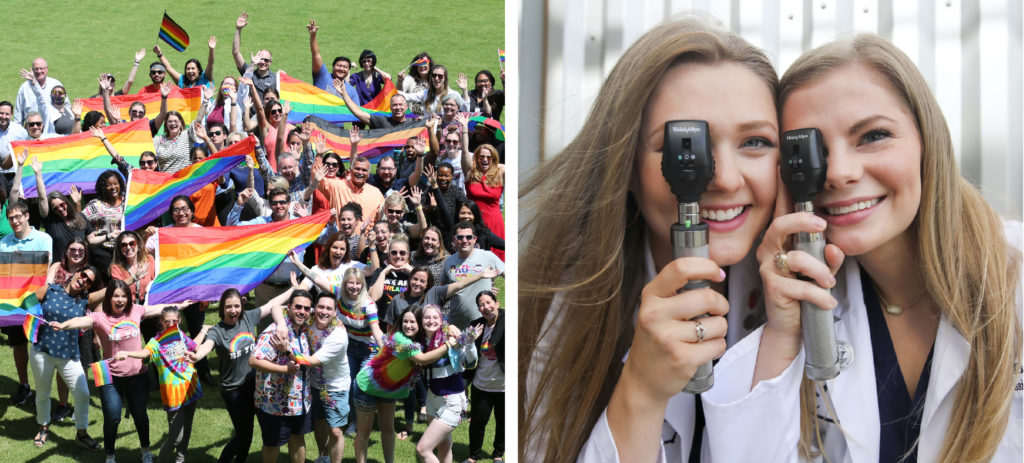Department Overview
Be|Well is the Quality Enhancement Plan designed to improve the overall well-being of HSC students as they navigate through their journey to becoming the health care providers and professionals of the future. The goal is to embed well-being, emotional intelligence and resiliency activities into the curricular and co-curricular activities, allowing Be|Well to become an integral part of the HSC experience. To navigate the rest of the report, please use the links below.
Signature Programs and Services
The Be|Well QEP initiative is comprised of three student learning outcomes integrated in a curricular and co-curricular manner across the academic programs at HSC. These outcomes are designed to run parallel to one another to integrate and reinforce well-being concepts.
Through the QEP, well-being champions help students learn to identify concepts associated with well-being, emotional intelligence and resilience in the early phases. Students go on to create a stress management growth plan and learn to analyze their skills in stress management and improve them. By the end of their journey, learners use the HSC Well-Being Model domains as a guide to developing capacities for resilience to support their success in school and future professions.
Components of HSC’s Well-Being Model include sections on knowing yourself, working with others, navigating individual needs and community belonging. The model untaps users’ potentials by allowing them to explore their own values, purpose, emotional intelligence, cultural awareness, social and networking skills, and physical, emotional and financial well-being. The model’s final domain explores students’ professional community and ways they can serve their community.
Collaborative Initiatives
The QEP team collaborated with the Office of Care and Civility and Dr. Brandy Roane, who answered questions about sleep. Students learned how to know if they’r e getting the optimal amount of sleep, whether dreams are good or bad for health, what role genetics play in sleep problems and more.
In partnership with the Office of Care and Civility and Financial Aid, the QEP team raised awareness about the importance of early personal financial management. In addition, this event walked students through how to review a yearly budget and introduced members of the campus community to the various financial wellness services available within their office.
The Office of Care and Civility, the Career Readiness Center and the QEP team collaborated to provide students information, tips and insight to become competitive candidates for jobs.
Along with the Center for Academic Performance, International Services, Financial Aid, Career Readiness, Disability Access, Office of Care and Civility, the Student Health Clinic and Community Outreach, the QEP team hosted a fair designed to improve the overall well-being of students and teach them the way the HSC Well-Being Model is designed to create a holistic experience. The wellness fair brings together campus and community partners along with students to explore the many dimensions of wellness HSC offers through interactive booths, information about health services and wellness activities.
QEP collaborated with the Office of Care and Civility and International Services to introduce students to the various ways their office can help them expand their cultural competency as they become providers of the future. T his collaboration examines the ability of systems to provide care to patients with diverse values, beliefs and behaviors, including the tailoring of health care delivery to meet patients’ social, cultural and linguistic needs.
The team partnered with the Office of Care and Civility to give students a break between classes. The event featured stress-reducing activities, snacks and other ways that allow students to catch their breath.
In collaboration with the Office of Care and Civility, PA Vic Holmes and Kristina Clark in the Center for Academic Performance, a two-part training series was developed to show students how to become an LGBTQ ally. T he series includes the full-spectrum of sexual and gender diversity, terminology and inclusive language, identity formation and information about how to be an ally.
Student Success Stories
“I really liked that they tried to show awareness for our mental health as it is so important while we’re trying to strive to be health care professionals during a pandemic.”
“I am not American, and I feel like cultural awareness is very important based on personal experience.”



Social media